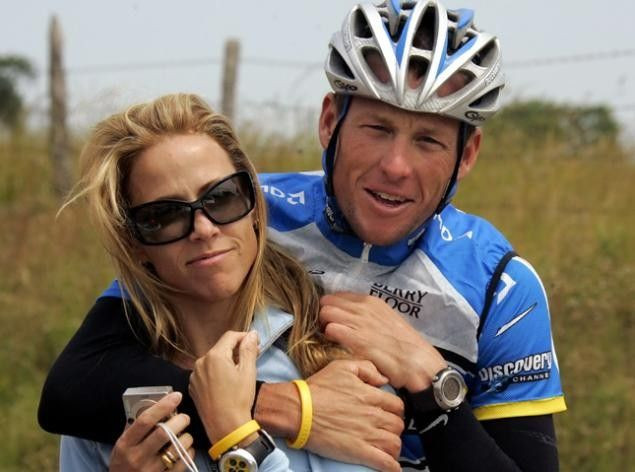Sheryl Crow on Lance Armstrong, May Have Been the 'Smoking Gun' in a Federal Investigation

Seven years ago, when she had just gotten engaged to cyclist Lance Armstrong, Sheryl Crow held an interview with USA Today in which she addressed the doping rumors against her then fiancé.
Downplaying the potential implications of the charges, Crow said, "I don't think the French people are on a mission to strip him of his integrity." She was referring of course to the previous allegations from Armstrong's camp that the French had purposely tainted a urine sample produced by him with Erythropoietin, during the 1999 Tour de France.
"It's just a handful of people pursuing that theory," Crow continued, "and it's tiresome and a nuisance, and it will eventually end, I hope." But unfortunately for Armstrong, the debate has not ended, and now that the 7-time Tour de France winner has been stripped of all his titles and banned for life from competing in cycling, Crow is being labeled by some as a defining informant in the case against him.
According to new reports, Crow, who dated Armstrong during the last two years of his now disqualified Tour de France victories, was interviewed by federal agents from United States Anti-Doping Agency in 2011, during an ongoing two-year investigation.
In the new tell-all memoir, which will be released on Wednesday titled,"The Secret Race: Inside the Hidden World of the Tour de France, Doping, Cover-ups and Winning at All Costs" by Tyler Hamilton, a former teammate and later rival of Armstrong's, he reveals many damaging details including that Crow was subpoenaed just weeks before the grand jury concluded its investigation of Armstrong.
Hamilton also alleged that Crow stayed in an apartment in Girona, Spain that was used by Armstrong to store and distribute performance-enhancing drugs to teammates before major races, reported the New York Daily News. Among some of the more gruesome doping methods employed, Hamilton claims that teammates injected the illegal blood-booster EPO, and later took transfusions of their own blood, together, in an effort to enhance their endurance and recovery.
According to Hamilton, doping became a "fact of life" for Armstrong. "Lance worked the system ... Lance was the system," Hamilton writes in his memoir, admitting that, "nobody sets out wanting to dope."
Jay Cooper, an attorney for Crow, who advised the now 50-year-old songwriter to cooperate with federal agents, declined to speak on the matter, citing attorney-client privilege. "I'm not going to comment one way or the other," Cooper told the NY Daily News.
According to the USADA, at least 10 cyclists in total have corroborated Hamilton's claims, and agreed to testify against Armstrong.
© Copyright IBTimes 2025. All rights reserved.





















